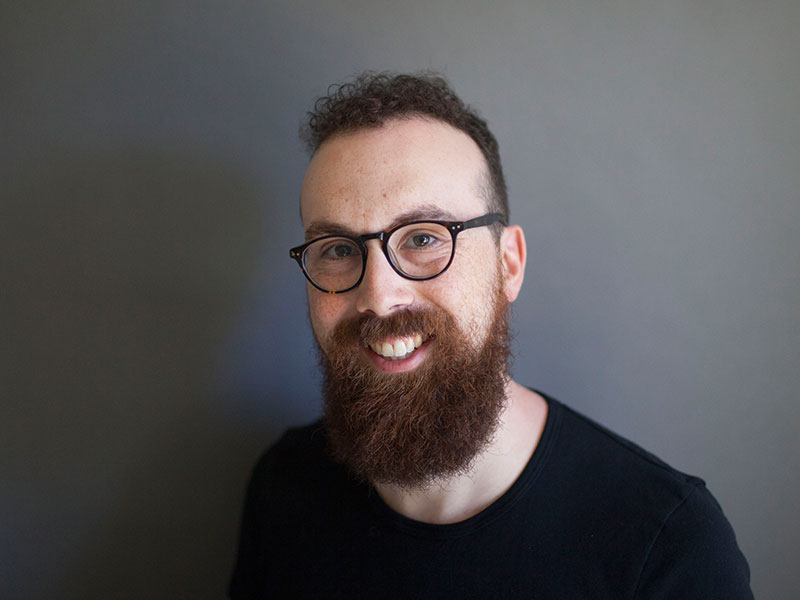In a first for Canada, the Winnipeg Free Press hired a full-time cannabis reporter, who will cover all aspects of the burgeoning industry, from its business prospects, medicinal use and upcoming legalization in 2018. Solomon Israel, a 32-year-old Jewish journalist who cut his teeth at the CBC, joined the Free Press in August, to report on cannabis issues affecting Manitoba and the rest of the country.
He’s already covered Canada’s plan to police cannabis-impaired drivers, investigated how pot dealers and politicians regard the new legalization policies and looked into how Manitoba may model its plan after Ontario’s. Israel, who grew up in Newton, Mass., and completed his masters of journalism at Carleton University in 2011, also interned at the Jerusalem Post, before working as a TV news producer on The Lang and O’Leary Exchange. He later became an online reporter for cbc.ca.
He spoke to The CJN about what to expect from his upcoming work, the appeal of reporting on the cannabis industry and what many Canadians may not know about marijuana legalization.
What got you interested in writing about marijuana?
Last year, I was working for cbc.ca, for its business news section, and I wrote about the big medical cannabis industry developing in Canada. I felt overwhelmed with a lot of work, though, and went on a road trip in the summer of 2016, visiting several U.S. states, and thought I would do some reporting along the way, such as U.S. campaign coverage. But when I ended up in Colorado, I wanted to check out their legal cannabis scene and I wrote a few articles on what Canada can learn from Colorado’s example.
READ: INTRODUCING THE WORLD’S FIRST KOSHER-CERTIFIED MARIJUANA
What areas of coverage will you be reporting on as a cannabis reporter for the Free Press?
We just launched a separate cannabis news site that links to the Free Press and can be found at www.TheLeafNews.com. I’ll cover all aspects of cannabis, such as the business and legal angles, as well as looking at its impact on culture and social justice. We see our audience as people who don’t know about this subject too well and want a source that’s as objective as possible, as opposed to a cannabis news site targeted toward people in the industry, or the culture.
Is there any angle you’ll tackle that will be of particular interest to Manitoba readers?
I’m not just covering cannabis from a Manitoba perspective, but from a national perspective. And while Manitoba might not be a natural place to cover this industry, since a lot of the action takes place in Ontario and B.C., that’s not to say a lot of things aren’t happening here. Plus, there are many interesting people to meet.
Also, our premier has not been secretive of the fact that he is frustrated about cannabis legalization and has expressed how he would like it delayed.
Following a beat is all about sources and networking. How are you establishing sources within the cannabis industry, including the policing and political communities?
I’m doing it the same way as with any other beat. What’s always been key for me is meeting people before I talk to them as sources for a story, like having a casual sit-down chat. When I wrote for CBC News, I always included my email at the bottom of each article and I often received emails from those within the cannabis industry when I tackled that subject.
What is it about the Canadian cannabis industry that is attractive to you?
I find it fascinating to watch an industry get built from the ground up, which is not entirely true in this case, but it’s hard to report on because marijuana is illegal and people don’t want to talk about it. We’ll be the second country in world to fully legalize this drug and it’s pretty rare to get a chance to report on that phenomenon.
In 2008, you spent four month as an intern at the Jerusalem Post. What did you learn from that experience?
I got a great crash course on reporting. They didn’t coddle me there as an intern and we had to cover the same things as regular reporters. We got into the thick of reporting right away. On my second day, I had story on the front page and I got hooked on that adrenaline of tight deadlines and how to produce something immediately.
What is your biggest challenge in reporting on cannabis as a beat?
For me, it’s the science of cannabis. I don’t have a background in medicine or chemistry and there are a lot of claims thrown around by advocates for and against cannabis that rely on science. I’ll be getting experts to help interpret some of those claims, to determine if the science is credible.
What’s something Canadians might not know about the new cannabis legislation coming this summer that you think they should know about?
There’s a perception that making weed legal is going to make it a free-for-all. It’s not decriminalization, where police will stop enforcing laws against the drug. Legalization means taking certain laws and replacing them with a new set of laws. Marijuana is going to be strictly regulated and controlled and the new laws will definitely have some cannabis activists up in arms. Some are calling it “criminalization 2.0.”







